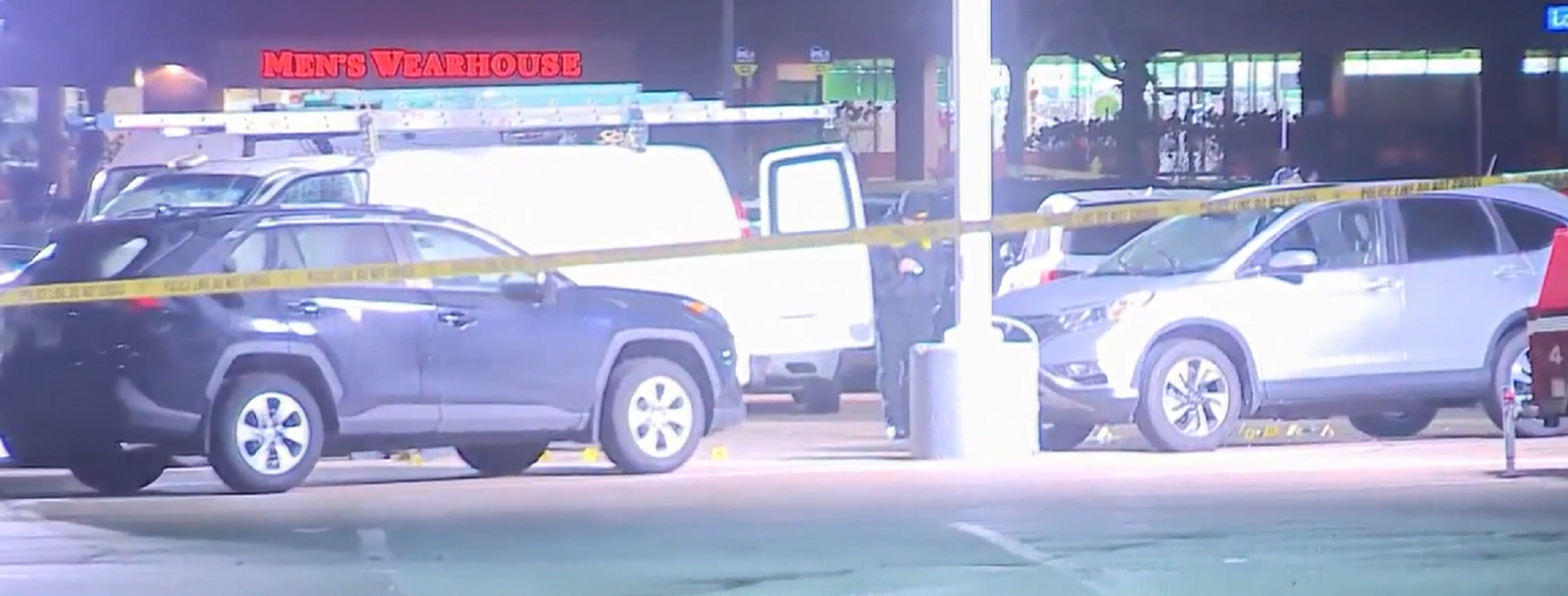Chicago's mayoral election is far from over, despite Election Day having come and gone.
But what started out as a hotly contested race between nine candidates to unseat Chicago Mayor Lori Lightfoot is now down to two candidates who will face off in a runoff election next month.
Those two candidates are former Chicago Public Schools CEO Paul Vallas and Cook County Commissioner Brandon Johnson.
Here's what to know about the runoff election and what's next:
Who are the two top candidates heading to the runoff?
Paul Vallas
Vallas, who finished in ninth place in the 2019 mayoral race, surged ahead in polling in the weeks leading up to the election, campaigning heavily on a message of increased investment in police and a focus on public safety in a community that showed it was the number one issue on the minds of voters.
Local
“Public safety is the fundamental right of every American,” he said during his acceptance speech. “It is a civil right, and it is the principal responsibility of government. We will have a safe Chicago, and we will make Chicago the safest city in America.”
Vallas unveiled an extensive public safety platform in December, calling for the firing of Police Supt. David Brown and for an expanded push to fill the more than 1,600 vacancies that currently exist within the Chicago Police Department.
Feeling out of the loop? We'll catch you up on the Chicago news you need to know. Sign up for the weekly Chicago Catch-Up newsletter.
He also pledged to “push resources to the district level” and said that he would use funds the Chicago Transit Authority has been using to hire private security to instead hire additional police officers to monitor platforms and stations.
Vallas also said he will aim to expand access to educational opportunities for the children of the city, saying that public safety is impossible without first emphasizing education.
He also pledged to work toward balancing the city’s budget and said that if elected he would avoid conflicts with organized labor that defined Lightfoot's tenure.
Vallas has faced criticism on a variety of fronts in the election, appearing at an event for Awake IL, a group that has been criticized for anti-LGBTQ rhetoric. He later condemned the group.
He also received the endorsement of the Chicago chapter of the Fraternal Order of Police, which again invited criticism primarily due to opposition to the group’s President John Catanzara.
He was accused of having a permanent residence in Palos Heights, but those charges were dismissed after an Inspector Generals’ inquiry.
In more recent days, Vallas was also blasted after it was found that his Twitter account had liked tweets that “used racist language, supported controversial police tactics like ‘stop and frisk,’ or insulted the mayor in personal terms,” according to the Chicago Tribune.
Vallas denied liking those tweets and argued that his account had been hacked.
You can read more about Vallas’ platform on his website.
Brandon Johnson
Johnson, 46, was a relative unknown on the citywide political scene, having won a seat on the Cook County Board of Commissioners by defeating Richard Boykin in the 2018 Democratic primary.
Born in Elgin, Johnson also served as an organizer with the Chicago Teachers Union and helped organize the union’s strike in 2012, according to his campaign biography.
It was the support of the CTU that vaulted Johnson into the race in a big way, along with support from the American Federation of Teachers and the United Working Families group.
That support propelled him to a top-two finish in the election.
“You know, a few months ago they said they didn’t know who I was,” he told supporters Tuesday. “I am so freaking proud because we did this.”
As a natural extension of his experiences as a teacher and organizer, Johnson predicated his campaign heavily on investments in public schools, calling for additional resources for a system that has seen dropping enrollments and shuttering buildings in recent years.
Johnson has called for $1 billion in new investments in education, training and job placement in underserved areas across the city, and has pledged to cut “wasteful spending” in the city’s budget.
“Tonight is about building a Chicago that truly invests in its people,” he said during his victory speech.
He also called for investments in mental health services and other policies that would “de-escalate conflict and reduce violence,” and said that CPD will need to step up efforts to comply with federal consent decrees.
Johnson has been criticized on a number of fronts, including his backing of a proposal to charge suburban Metra riders a surcharge on their tickets. He also has proposed a “head-tax” on employees of companies in the city, and also proposed a tax of nearly $100 million on airlines for “polluting the city’s air.”
He also has called for a hike on Chicago’s hotel tax, already the highest in the nation.
Lightfoot accused Johnson of seeking to defund the police department, citing a statement made by the candidate in recent years that he would make doing so a “political goal.”
Johnson has since walked some of those comments back, but Vallas will in all likelihood go after the commissioner on that front.
Some groups have also blasted Johnson for his ties to the Chicago Teachers Union, saying that the group’s large fundraising efforts on his behalf would make him more beholden to the labor union in future negotiations.
You can read more about Johnson’s platform on his campaign website.
When is the runoff?
The city has already slated April 4 as the date for a runoff election, for both the mayoral and aldermanic races.
What is a runoff?
Runoff elections are held when no candidate secures the required majority of 50% of votes.
They are a second election that will determine which of the top two vote-getters will win a designated race.



